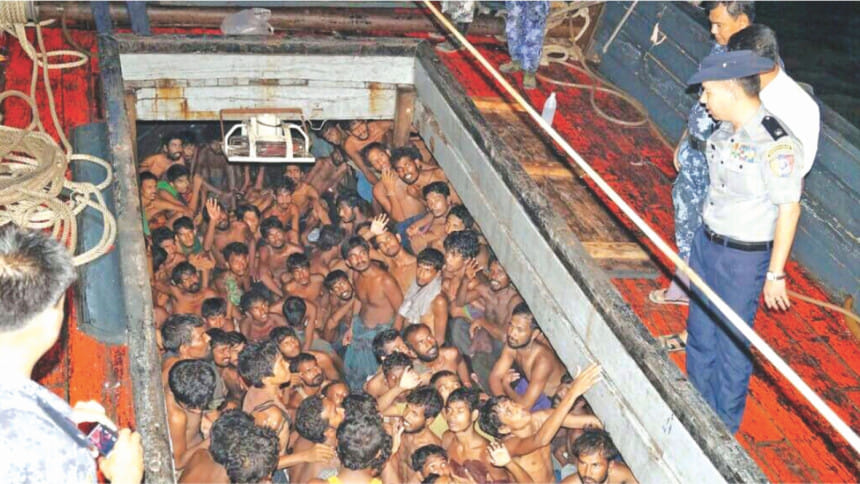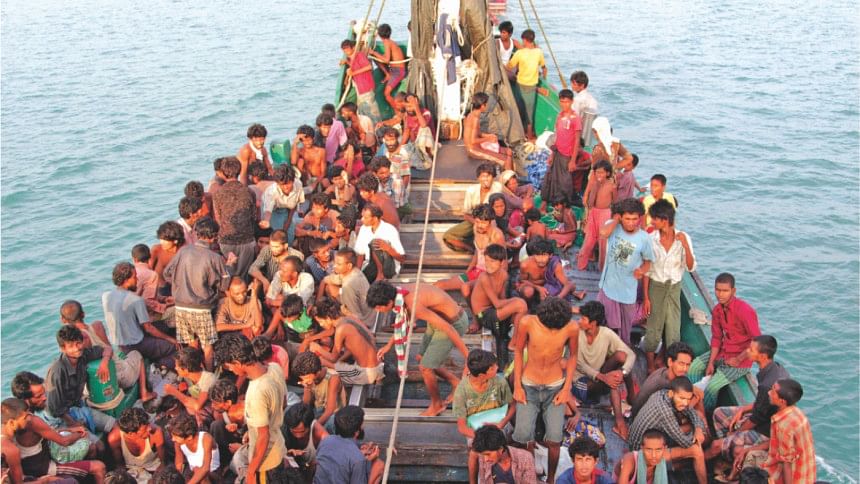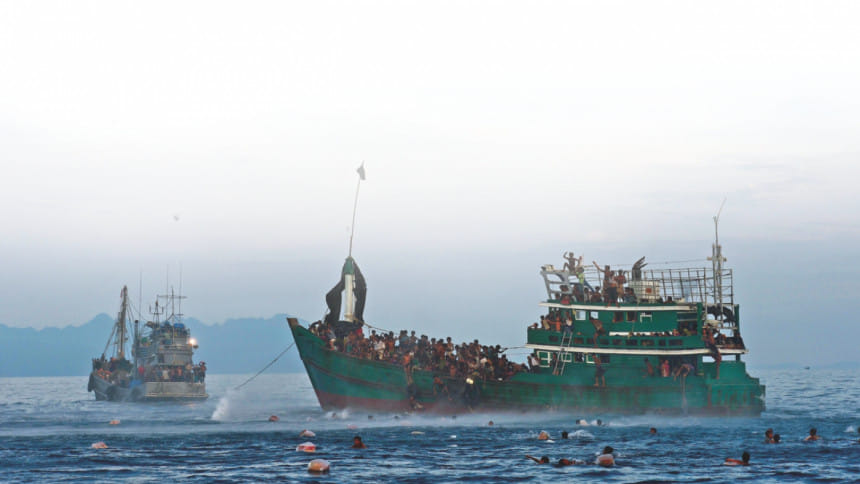Refugees No to policies that kill

Photos: AFP
A massive 60 million people are now displaced worldwide- the largest number since World War II, according to the UN. Between 1 January and 31 December 2015, an estimated 1,008,616 fled to Europe by sea. 84 percent of them came from refugee-producing countries, with 49 percent of them coming from Syria, 21 percent from Afghanistan and 9 percent from Iraq. 17 percent were women and 25 percent were children under the age of 18. Despite winter conditions and attempts to close the Mediterranean Sea route, people have not stopped fleeing and between January and April 2016, more than 180,000 people have arrived in Europe. Another 1,200 people have died or gone missing on the way.
Médecins Sans Frontières/Doctors Without Borders (MSF), the international medical humanitarian organisation, believes that today’s humanitarian crisis in Europe is the result of a collective catastrophic failure to respond to the urgent need for assistance and protection of over a million men, women and children. The lack of safe and legal options for people to flee, the razor wire fences, capriciously closed borders, squalid, inhumane reception conditions and the complicated, ever changing registration procedures aggravated the already miserable conditions imposed on thousands fleeing war, poverty and oppression. This served only to make fleeing more dangerous and increase the suffering of those on the move.

Between 1 January and 31 December 2015 MSF teams provided more than 100,000 medical consultations to refugees and migrants on its search and rescue vessels in the Mediterranean Sea, in Italy, Greece, in the Balkans and in Western Europe. But MSF rescuers are witnessing and hearing similar stories of fear, misery and violence the world over: from Morocco, Mexico, Yemen, Turkey, Bulgaria, Greece and southern Europe, and from Central and South American into the United States. More locally, MSF teams witness it across the Andaman Sea; in Myanmar; and also in Kutupalong, Bangladesh, where MSF runs a clinic offering healthcare to Rohingya people fleeing Myanmar as well as for the local community in and around Ukhia.
In a world plagued by conflict, poverty and inequality, population movements are inevitable and governments must find a way to manage migration that minimises suffering rather than creating it. As a medical humanitarian organisation with more than 40 years of experience providing assistance to people on the move, MSF’s request is simple: stop applying policies that kill and prolong anguish.
Healthcare in Rescue Ships
In 2015 MSF teams on board three search and rescue ships in the Central Mediterranean assisted over 23,000 people in 120 separate rescue interventions.
The hardship people endure on these journeys is shocking for MSF teams to witness. They know first-hand the devastation war inflicts in places like Somalia, Syria and Sudan, the systematic discrimination in Myanmar and the subsistence living and constant social and political turmoil in many parts of Sub-Saharan Africa and South East Asia, which force millions to flee. But they also hear horrific stories of the flight itself - people left to die of dehydration in the Sahara, packed like cattle into warehouses, trucks, and ships or raped, tortured and starved in Libya and Thailand. Indeed, the journey itself, both for the forcibly displaced and the so-called migrants can quite literally be fatal. At the very least the chronic abuse suffered on the journey leads to lasting physical injury and psychological trauma. Again, governments must stop applying policies that kill and prolong the anguish; instead, they must provide protection and assistance based on humanitarian imperatives according to needs that ensure basic human dignity.
Additionally, MSF operates land-based migration projects in five countries: Tunisia, Italy, Greece, Serbia, and FYROM (Former Yugoslav Republic of Macedonia)
MSF in Bangladesh
Médecins Sans Frontières, a Nobel Peace Prize winning organisation, has worked in Bangladesh since 1992. Its teams have responded to numerous humanitarian emergencies in the country, bringing medical support to victims of natural and man-made disasters. MSF also worked with the Ministry of Health and Family Planning to reduce the burden of diseases such as malaria or visceral leishmaniosis. MSF currently operates two projects in Bangladesh. In Kamrangirchar, a suburb of Dhaka, it provides medical services to young adolescents and factory workers. In Ukhia Upazilla, Cox’s Bazaar, MSF runs a 50-bed hospital providing maternal and medical care to the local population, including Rohingya refugees from Myanmar. MSF works in almost 70 countries worldwide.


 For all latest news, follow The Daily Star's Google News channel.
For all latest news, follow The Daily Star's Google News channel. 



Comments